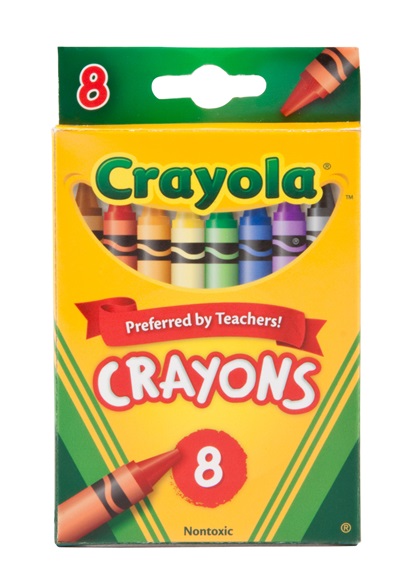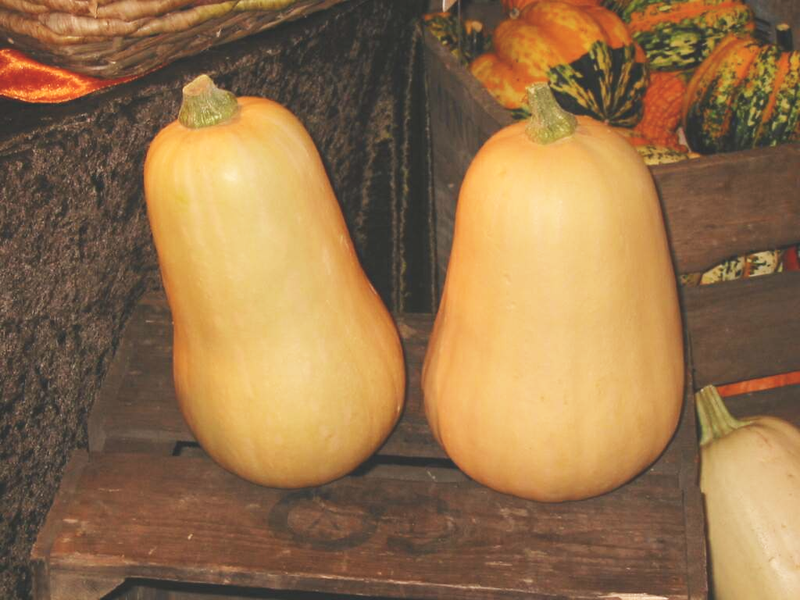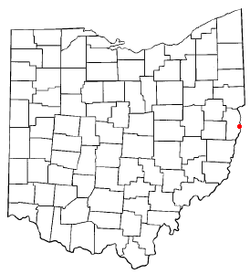This is part 3 of my series on the 35 things I'm thankful for. Part 1 is here, and part 2 is here.
15. My mentors. I know I'm spoiled in my life generally, and I'm extra spoiled in my PhD. Some students in the world can't find a single mentor besides their supervisor; I entered my PhD with six in the corridor upstairs from my office. Over time, my mentors have changed in nature and number. I was devastated when I got the news that Kevin Boyle had passed (that link is to my favorite obituary for him). I was not only losing a mentor, but a friend, and his loss still motivates and saddens me today. Shortly thereafter, two others went to part-time status and then some went on maternity leave. One took on extra administrative responsibilities. My ability to jump into their office whenever I needed a pep talk or career advice has, at times, been limited. Even as their availability changed, their impact did not. I also found new mentors, people who create space in their professional lives for me. Each new mentor eventually becomes a friend - and sometimes my friends become mentors. Their generosity of spirit allows me to develop and to pass on the lessons they give me. Sometimes I feel I should be further in my development and without a need for mentors anymore; but then I realize that even if I was able to live without them, I wouldn't want to. The give-and-take of a good discussion over my PhD inspires me to go deeper. The constant reminder that I'm entitled to say "no" is sometimes both a necessity and a godsend. They have seen me at my worst as an academic and a writer, and yet they always encourage me to be my best. I am, forever, indebted to their care and attention.
14. My legs. I broke one last year and it still hurts, particularly when it's cold or when I'm sick (like now, when I'm both cold and sick). But they work. The broken one healed; the non-broken one compensated in the meantime. They propel me. They let me feel the sensation of running and bicycling, and walking with friends through a muddy path. Legs are pretty great and I don't think we give them enough credit. Or perhaps that was just me.
13. Post-it notes. I also love whoever invented them (though I understand that it was neither Romy nor Michelle). They're so pretty and they make my life seem so much more organized.
12. Earplugs. For a while, I couldn't find earbuds that worked with my ears, but a pound store (like a dollar store, but in British pounds) near my home had these awesome ones with little jelly ends that fit snuggly inside my years. Now I can listen to Frightened Rabbit and Taylor Swift one right after the other and no one judges me. Well, until now. And while I like being exposed to new music, I'm so glad I don't need to listen to the favorite songs of every random guy on the underground.
11. Crayons. I particularly like Crayola's box of 64 (though I'm devastated to learn, via wikipedia, that some of my favorite colours were retired!). I can't find the 64 box here in the UK so I keep myself busy with a box of 8. Crayons are brilliant (with almost all the definitions of that word applying). When I'm stumped on my PhD or in need of a break, I find colouring or drawing gives me the mental break necessary to engage with my PhD again from a fresh start. It's also one of those fun words where the more you look at it, the more certain you are it can't be a real word. But it is.
10. Martin Luther King, Jr., J.F.K., R.F.K., Sandra Day O'Connor, Ruth Bader Ginsburg, and Susan B. Anthony. Jane Austin, J.D. Salinger, Harper Lee, and Elizabeth Barrett Browning. Khalil Gilbran. Pablo Neruda. Leonard Cohen, Bob Dylan, and Bruce Springsteen. Maya Angelou and Gloria Steinem. They inspire me and challenge me. At times in my life when I've felt I had few friends, they were my friends. When I feel disconnected from life, they connect me again. They also make me sound smart when I'm at a party. Or at least they did back when I liked being pretentious.
9. New Year's Eve. I have an awesome group of friends I spend most New Year's Eve with. This year, though, one is on a Navy warship, one is playing doctor (well, being a doctor), one is living in another country, and then there's me and my PhD-related income levels that make travel home during the holidays unlikely at best. We've had to postpone NYE this year, but it's coming up. This one day of the year reminds me of the love I am the recipient of the rest of the time; it also lets me make resolutions I'll quickly break, and gives me a sense of newness that motivates small changes in my life.
8. Wine. I can live without wine. I have been to Muslim states where it's unavailable or prohibitively expensive, so I know I can do it. And I've applied to go to Muslim states again in the near-ish future, so I may have to do it. But I just think life is better with wine than without.
7. Time. I wish we had more of it, but the concept of it and the uses of it are pretty nice.
6. My girlfriends. I'm sure that with all the love I've been foisting on my guy friends, they've probably felt neglected on my blog. And girls already get a bad rep as friends. When we're young, women are taught by society that gossiping is a way to make friends. This leads to an age-old lie often told that women make bad friends. We're not as accepting as men. We're not as trustworthy or laid back or fun or interesting. All we talk about are boys and each other and hair and make up. I hate when I hear that same old trope about how girls are the worst, and you can never trust a girl friend, and they'll stab you in the back, and blah blah blah. Have I been stabbed in the back by supposed friends? Absolutely. Both times I've been cheated on, a friend was involved. Nothing like feeling absolutely sucker punched in the gut when you discover not one but two people you trusted had betrayed you. But that's two women out of the hundreds I have been close friends with.
While my junior high and high school circles of friends changed almost as quickly as the seasons and brought drama and back-stabbing, and gossip and fights, my grown-up girl friends have filled my life with love, poetry, artwork, prayers, hugs, long emails when I'm far from home, extended phone calls, cocktails and wine, conversations about the meaning of life, career advice, proof-reading skills, nights out, nights in, and a shared love of romantic comedies we completely recognize are not true to life. They have held my hair when I'm sick, made me soup when I had a broken leg, hugged me when I cried over a broken heart, helped me pack for my grandmother's funeral, lent me hundreds of books, and given me pep talks before every board meeting or interview I've had. They laugh at my ridiculously embarrassing stories - getting my suitcase caught in the turnstiles at a tube station; tripping and falling into the lap of a stranger; or the time I tried to stay warm at a football game and ended up cutting off the circulation in my legs (long story; high school; that's all you get) - and ultimately they get me to laugh, too. They are my cheerleaders and my confidants.
I have an ever-growing set of presents that remind me of these faithful, wonderful, and loving girl friends. Their flowers, teddy bears, fun dresses, jewelry, books, handbags, and music allow me to stay connected when facebook, the internet, and the phone just don't seem to work as well as we expect. They bless my life with happiness. If I had to endure a few years of gossip and drama, or a few moments of heartbreaking betrayal to find the gems that decorate my life, then the payoff was well worth the cost.
15. My mentors. I know I'm spoiled in my life generally, and I'm extra spoiled in my PhD. Some students in the world can't find a single mentor besides their supervisor; I entered my PhD with six in the corridor upstairs from my office. Over time, my mentors have changed in nature and number. I was devastated when I got the news that Kevin Boyle had passed (that link is to my favorite obituary for him). I was not only losing a mentor, but a friend, and his loss still motivates and saddens me today. Shortly thereafter, two others went to part-time status and then some went on maternity leave. One took on extra administrative responsibilities. My ability to jump into their office whenever I needed a pep talk or career advice has, at times, been limited. Even as their availability changed, their impact did not. I also found new mentors, people who create space in their professional lives for me. Each new mentor eventually becomes a friend - and sometimes my friends become mentors. Their generosity of spirit allows me to develop and to pass on the lessons they give me. Sometimes I feel I should be further in my development and without a need for mentors anymore; but then I realize that even if I was able to live without them, I wouldn't want to. The give-and-take of a good discussion over my PhD inspires me to go deeper. The constant reminder that I'm entitled to say "no" is sometimes both a necessity and a godsend. They have seen me at my worst as an academic and a writer, and yet they always encourage me to be my best. I am, forever, indebted to their care and attention.
14. My legs. I broke one last year and it still hurts, particularly when it's cold or when I'm sick (like now, when I'm both cold and sick). But they work. The broken one healed; the non-broken one compensated in the meantime. They propel me. They let me feel the sensation of running and bicycling, and walking with friends through a muddy path. Legs are pretty great and I don't think we give them enough credit. Or perhaps that was just me.
13. Post-it notes. I also love whoever invented them (though I understand that it was neither Romy nor Michelle). They're so pretty and they make my life seem so much more organized.
12. Earplugs. For a while, I couldn't find earbuds that worked with my ears, but a pound store (like a dollar store, but in British pounds) near my home had these awesome ones with little jelly ends that fit snuggly inside my years. Now I can listen to Frightened Rabbit and Taylor Swift one right after the other and no one judges me. Well, until now. And while I like being exposed to new music, I'm so glad I don't need to listen to the favorite songs of every random guy on the underground.
11. Crayons. I particularly like Crayola's box of 64 (though I'm devastated to learn, via wikipedia, that some of my favorite colours were retired!). I can't find the 64 box here in the UK so I keep myself busy with a box of 8. Crayons are brilliant (with almost all the definitions of that word applying). When I'm stumped on my PhD or in need of a break, I find colouring or drawing gives me the mental break necessary to engage with my PhD again from a fresh start. It's also one of those fun words where the more you look at it, the more certain you are it can't be a real word. But it is.
 |
| What my crayon box looks like. Image from Crayola. |
10. Martin Luther King, Jr., J.F.K., R.F.K., Sandra Day O'Connor, Ruth Bader Ginsburg, and Susan B. Anthony. Jane Austin, J.D. Salinger, Harper Lee, and Elizabeth Barrett Browning. Khalil Gilbran. Pablo Neruda. Leonard Cohen, Bob Dylan, and Bruce Springsteen. Maya Angelou and Gloria Steinem. They inspire me and challenge me. At times in my life when I've felt I had few friends, they were my friends. When I feel disconnected from life, they connect me again. They also make me sound smart when I'm at a party. Or at least they did back when I liked being pretentious.
9. New Year's Eve. I have an awesome group of friends I spend most New Year's Eve with. This year, though, one is on a Navy warship, one is playing doctor (well, being a doctor), one is living in another country, and then there's me and my PhD-related income levels that make travel home during the holidays unlikely at best. We've had to postpone NYE this year, but it's coming up. This one day of the year reminds me of the love I am the recipient of the rest of the time; it also lets me make resolutions I'll quickly break, and gives me a sense of newness that motivates small changes in my life.
8. Wine. I can live without wine. I have been to Muslim states where it's unavailable or prohibitively expensive, so I know I can do it. And I've applied to go to Muslim states again in the near-ish future, so I may have to do it. But I just think life is better with wine than without.
7. Time. I wish we had more of it, but the concept of it and the uses of it are pretty nice.
6. My girlfriends. I'm sure that with all the love I've been foisting on my guy friends, they've probably felt neglected on my blog. And girls already get a bad rep as friends. When we're young, women are taught by society that gossiping is a way to make friends. This leads to an age-old lie often told that women make bad friends. We're not as accepting as men. We're not as trustworthy or laid back or fun or interesting. All we talk about are boys and each other and hair and make up. I hate when I hear that same old trope about how girls are the worst, and you can never trust a girl friend, and they'll stab you in the back, and blah blah blah. Have I been stabbed in the back by supposed friends? Absolutely. Both times I've been cheated on, a friend was involved. Nothing like feeling absolutely sucker punched in the gut when you discover not one but two people you trusted had betrayed you. But that's two women out of the hundreds I have been close friends with.
While my junior high and high school circles of friends changed almost as quickly as the seasons and brought drama and back-stabbing, and gossip and fights, my grown-up girl friends have filled my life with love, poetry, artwork, prayers, hugs, long emails when I'm far from home, extended phone calls, cocktails and wine, conversations about the meaning of life, career advice, proof-reading skills, nights out, nights in, and a shared love of romantic comedies we completely recognize are not true to life. They have held my hair when I'm sick, made me soup when I had a broken leg, hugged me when I cried over a broken heart, helped me pack for my grandmother's funeral, lent me hundreds of books, and given me pep talks before every board meeting or interview I've had. They laugh at my ridiculously embarrassing stories - getting my suitcase caught in the turnstiles at a tube station; tripping and falling into the lap of a stranger; or the time I tried to stay warm at a football game and ended up cutting off the circulation in my legs (long story; high school; that's all you get) - and ultimately they get me to laugh, too. They are my cheerleaders and my confidants.
I have an ever-growing set of presents that remind me of these faithful, wonderful, and loving girl friends. Their flowers, teddy bears, fun dresses, jewelry, books, handbags, and music allow me to stay connected when facebook, the internet, and the phone just don't seem to work as well as we expect. They bless my life with happiness. If I had to endure a few years of gossip and drama, or a few moments of heartbreaking betrayal to find the gems that decorate my life, then the payoff was well worth the cost.






